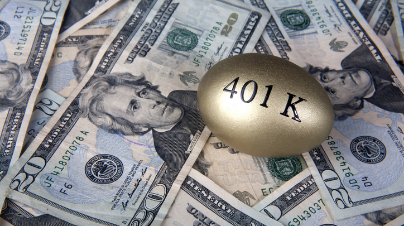One of the most common dilemmas faced by individuals is whether to withdraw from their 401(k) or borrow. This decision is often influenced by various factors such as immediate financial needs, tax implications, and long-term financial goals. The choice between borrowing from a 401(k) and withdrawing can be a complex one. This blog post aims to provide insights into both options, helping you make an informed decision that best suits your circumstances.
Understanding the Basics of 401(k)
Before delving into the specifics of borrowing from a 401(k) versus withdrawing, it’s crucial to understand what a 401(k) plan is. A 401(k) is a retirement savings plan sponsored by employers that allows employees to save and invest a portion of their paycheck before taxes are taken out. Taxes aren’t paid until the money is withdrawn from the account.
Borrowing From Your 401(k): Pros and Cons
Borrowing from your 401(k) can seem like an attractive option when you’re in need of quick cash. You’re essentially borrowing money from yourself, and the interest you pay goes back into your account. However, there are several factors to consider before choosing this route.
One advantage of borrowing from your 401(k) is that it doesn’t impact your credit score since it’s not considered a traditional loan. Furthermore, the interest rate is typically lower than that on personal loans or credit cards.
On the downside, if you fail to repay the loan within five years (or immediately if you leave or lose your job), it will be treated as a withdrawal and subjected to income tax and possibly a 10% early withdrawal penalty if you’re under age 59½. Additionally, while repaying the loan, you may miss out on potential investment growth in your retirement account.
Withdrawing From Your 401(k): Pros and Cons
Withdrawing funds from your 401(k) should typically be a last resort. The main advantage of this option is that you’re not obligated to repay the funds. This could be beneficial if you’re facing significant financial hardship and have no other resources available.
However, the drawbacks are substantial. If you’re under age 59½, not only will you have to pay income taxes on the amount withdrawn, but you’ll also face a 10% early withdrawal penalty. Moreover, withdrawing from your 401(k) reduces your retirement savings and could significantly impact your financial security in the future.
Tax Implications: Borrowing vs Withdrawing
When it comes to tax implications, borrowing from your 401(k) may be more advantageous than withdrawing. If you borrow and repay the loan on time, there are no immediate tax consequences. However, the repaid money will be taxed when withdrawn during retirement.
On the other hand, early withdrawals from a 401(k) are subject to income tax and potentially a 10% early withdrawal penalty. This can take a significant chunk out of your savings and leave you with less than what you initially withdrew.
Conclusion: Weighing Your Options
The decision between borrowing from your 401(k) or withdrawing depends largely on your individual circumstances and financial goals. If you’re considering either option due to financial hardship, it’s advisable first to explore other alternatives such as budgeting, cutting expenses or seeking financial assistance.
Remember that your 401(k) is meant for retirement savings. Any decision that involves tapping into these funds should be made with careful consideration of both immediate needs and long-term consequences.
If you decide borrowing from your 401(k) is the best option for you, ensure that you have a solid plan for repayment to avoid potential taxes and penalties. If withdrawal seems like the only viable solution, consider consulting with a financial advisor or tax professional to understand all implications fully.
In conclusion, while both borrowing from and withdrawing from your 401(k) have their pros and cons, the key is to make an informed decision that aligns with your financial situation and future goals.



